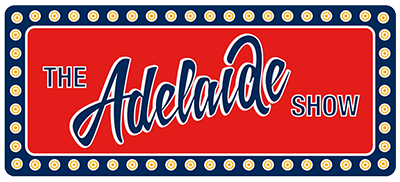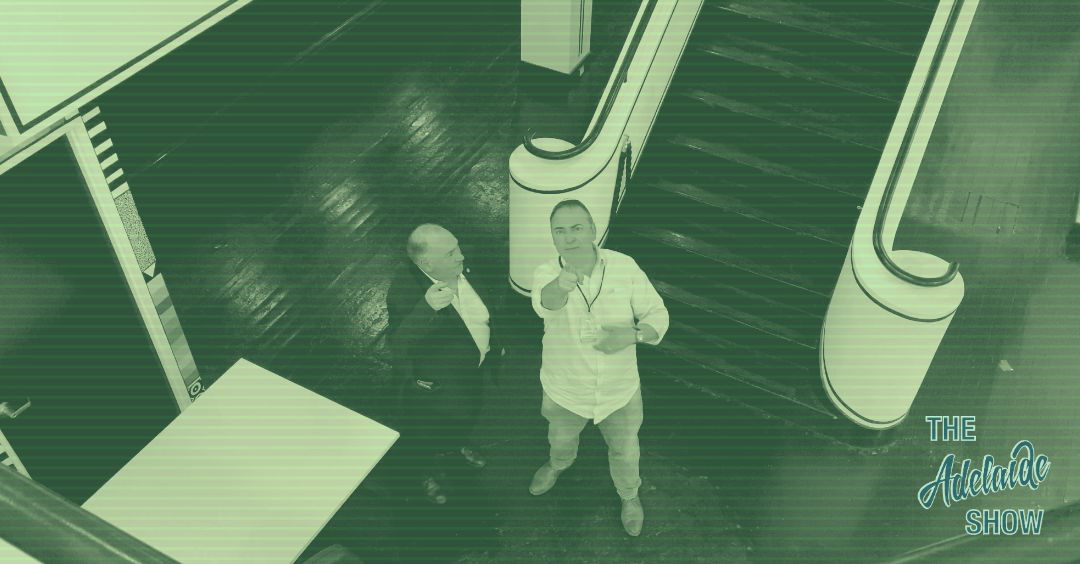In this week’s episode of The Adelaide Show, we reflect on data privacy and ethics and whether or not those terms exist in the real or virtual world.
To guide us through this discussion will be thought leader, Andrew Andrews.
This week, the SA Drink Of The Week is from Langmeil.
And in the Musical Pilgrimage, we hear a new song from Holas May.
And please consider becoming part of our podcast by joining our Inner Circle. It’s an email list. Join it and you might get an email on a Sunday or Monday seeking question ideas, guest ideas and requests for other bits of feedback about YOUR podcast, The Adelaide Show. Email us directly and we’ll add you to the list: [email protected]
If you enjoy the show, please leave us a 5-star review in iTunes or other podcast sites, or buy some great merch from our Red Bubble store – The Adelaide Show Shop. We’d greatly appreciate it.
And please talk about us and share our episodes on social media, it really helps build our community. Oh, and here’s our index of all episode in one concise page
Running Sheet: Data privacy and ethics
| TIME | SEGMENT |
| 00:00:00 | Intro |
| 00:04:38 | SA Drink Of The Week |
| 2019 Montepulciano Primativo from Langmeil. A brand new release. |
|
| 00:09:10 | Andrew Andrews |
| As a user of Google Maps, I not only get navigation on-demand but thanks to the hive mind of all the other users, Google is able to report on-the-fly about congestion up ahead and suggest alternate routes. This also means they have a nice record of everywhere I go, how long I stop for, etc. In expressing concern about this with our sometimes co-host and cognitive scientist Nigel Dobson, his opinion was that the benefits of convenience outweigh the downsides of the invasion of privacy because the big companies can get this information anyway, so we might as well get value from it before our robot overlords decide they’re finished with us. That’s a bleak thought but maybe it’s close to the truth. To explore this theme and many others surrounding data governance, data privacy and ethics, we have Andrew Andrews. Before we embark into the detail, Andrew, you work in a Data Management role but tonight you’re only talking as a citizen, correct?Andrew, when did you first become aware that ever increasing better and easier ways of collecting and sifting data meant ever increasing threats of abuse?How is data being gathered about us these days, especially in not-so-obvious ways?What are the sneakiest methods being used, eg, free games and apps?I’ve heard it said by marketing thought leader, Seth Godin, that people don’t worry about data being collected about them. What does make them upset is when they are surprised by it. For example the now famous story about Target in the USA uncovering a pregnancy.And surely those loyalty programs like Fly Buys and Rewards cards have just given the store owners and the product producers who can buy customer data, a comprehensive list of who is a prepper, ie, people who hoarded toilet paper, etc, would you expect there’ll be something rich added to their profiles? For example, there are some terrible pentacostal pastors in the USA who sell home survival kits for the end times. They must be counting the days before they can get contact details of hoarders be rich and invasive sources of data? Are our big retailers in the retail business or the data collection and mining business? I would expect that would be invaluable? Are any sources less vulnerable to snooping and data collection? Can we live “off the grid”? Why is data privacy something that people like Nigel dismiss as being a fantasy? Data Ethics is already practiced in University settings like Health and Education, do the rest of us need to follow suit? What is the more major issue: the capture of data, where it is being stored, how it is being shared, or how it is being used? I am guessing it will be all of the above So far, we have focussed on systems observing us but what happens when machines can take a small sample and then use big data and Artificial Intelligence to extrapolate from their base information and really impact our lives? Are there any upsides for society with the flourishing of the use of data and AI? Could it lead to more wealth and less work and that notion of the Universal Basic Income? |
|
| 00:51:57 | Musical Pilgrimage |
|
In the musical pilgrimage, we have a track called Protest by Holas May.
Adelaide-based independent artist Holas May has kicked off 2020 with a new single ‘Protest’, that’s now available on all streaming platforms.
The song discusses the artist’s call for action on climate change and is his outburst of emotion in relation to his feelings of lack of climate change action by the current Australian Government
The idea of ‘Protest’ is to reflect the frustration felt by the majority of the youth in Australia towards the government.
|
|
Here’s this week’s preview video.
SFX: Throughout the podcast we use free sfx from freesfx.co.uk for the harp, the visa stamp, the silent movie music, the stylus, the radio signal sfx, the wine pouring and cork pulling sfx, and the swooshes around Siri.

